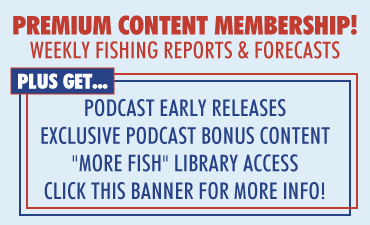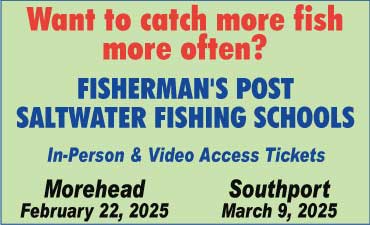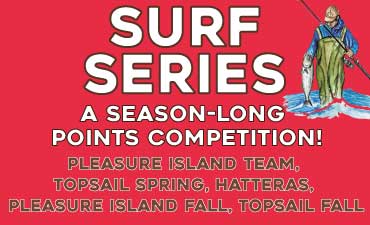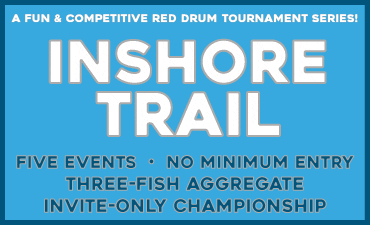Releases – April 25, 2013
The sportfishing industry supports the improvements in the administration’s final Implementation Plan for its National Ocean Policy (NOP) but still has concerns that the social, economic, public health, and conservation benefits of recreational uses of our nation’s public resources did not receive the priority consideration that it deserves.
The American Sportfishing Association (ASA), which represents the sportfishing industry and the broader sportfishing community, supports the plan’s acknowledgment of the need to avoid closing off public recreational access. The plan also highlights the millions of dollars paid annually by recreational anglers in the form of excise taxes on fishing gear and state fishing license fees that go to funding management of marine resources.
“In the ‘plus’ column, the industry is pleased to see the heightened emphasis on the role of state agencies in any kind of marine planning connected to the National Ocean Policy and the explicit statement that regions choosing to opt out of NOP-directed marine planning can do so,” said ASA President and CEO Mike Nussman.
ASA is disappointed that the NOP failed to include a broader and more pronounced acknowledgment of the need to designate public access to fishing, boating, and other recreational activities as priority uses, consistent with the administration’s “America’s Great Outdoors” initiative.
Nussman further said, “We welcome the plan’s emphasis on better science and data. ASA will continue to press for more pronounced prioritization of fishery data as well as socio-economic data that more clearly reflects who is tapping our ocean resources, their actual impacts on the resources, and the economic engines they are fueling.”
Many of the nation’s 13 million saltwater anglers have witnessed a disturbing trend toward reducing access to marine recreational fishing opportunities in recent years, and the Coastal and Marine Spatial Planning aspect of NOP has struck many in the sportfishing industry as a potential means for unjustified closures and limitations. The Implementation Plan does not totally dispel those concerns.
Language in the document referring to “ecologically important” areas for “focused protection” in the National Marine Sanctuary system actually points back to the anxiety the original NOP policy documents caused. However, language in the document regarding pilot projects, the role of state agencies, and other directives mark a move in a more sensible direction.
“Since the establishment of the NOP in 2010, ASA has continuously expressed concerns about how recreational access will be treated in the proposed marine planning. We want to ensure that the nation’s public resources remain open for American families to experience recreational pursuits, such as fishing and boating, consistent with safety and conservation goals,” said Nussman.
Nussman concluded, “Credit is due to the administration for improving significantly on past NOP policy documents, and we appreciate the fact that they have been listening to us and other recreational fishing and boating groups. The increased emphasis on logical steps to improve government efficiency and agency coordination is welcome as is the de-emphasis on federally driven marine planning.”
Finally, the Coastal Fisheries Reform Group (CFRG) reports that the North Carolina legislature will vote on a game fish bill. HB 983 was introduced in the House recently and when it passes will be sent to the Senate for action there. But note there is a twist this year. Because of the importance of the legislation to the state’s economy, the bill is entitled 2013 Fisheries Economic Development Act.
You will also note there is more to the bill than just game fish status for the three species. It includes money for dredging inlets, increased revenue for the Division of Marine Fisheries, and financial support for commercial fishermen who might be adversely impacted by the legislation.
The North Carolina Coastal Conservation Association (CCA) has been advocating for the legislation for the past three years. The push for a game fish bill began four years ago by the CFRG, but that bill was blocked at the committee level by opponents. The following year, the CCA took over as primary advocates for the bill, but the effort failed to see the bill introduced once again. Last year, the bill was not introduced because of a threatened veto by then Governor Bev Perdue.
This year, however, the bill will receive a vote. If passed, no longer will the commercial sale of wild caught red drum, spotted sea trout, and estuarine striped bass be permitted in North Carolina. Only fish imported or raised in fish farming operations could be sold in the state.
All recreational anglers should write, either by letter or email, their NC Representative and urge him or her to support this important legislation. Be respectful and emphasize the importance the designation would have for the fishery as well as the economic importance of the legislation.
If you don’t know who your Representative is, go to www.ncga.state.nc.us/House/House.html. There you will find their email addresses as well as mailing addresses.
In all other states that have either instituted game fish and/or an outright net ban, economic activity has increased. Why? Because as the fish populations, namely red drum and speckled trout to our south, have increased, the fishermen have increased. Fishermen spend lots of money in pursuit of their favorite recreation.
The game fish designation will result in recreational fishing becoming the economic engine that will help revitalize much of Eastern North Carolina’s economy. But it also benefits the entire state, because as jobs increase and revenues are generated, tax revenues increase.
This has been proven in Texas, Louisiana, Florida, and South Carolina. Within the past month, the State of Georgia also designated the red drum as a game fish. North Carolina joins Mississippi as the only states from NC to Texas without game fish for red drum and speckled trout.
The Coastal Conservation Association would like to announce the formation of North Carolina’s newest CCA Chapter, the Onslow Bay CCA. The Onslow Bay Chapter of CCA NC was formed in March of this year and aims to address coastal conservation and fisheries management issues that affect the residents of Jacksonville, Swansboro, Camp Lejeune, Sneads Ferry, and surrounding communities.
If you are interested in joining or attending Onslow Bay CCA meetings, please contact Larry Wicker at (910) 770-3764 or Matt Ray at (910) 388-6620.
The NC Aquarium at Fort Fisher will be holding two surf fishing workshops in May. The first is Saturday, May 4, at 9:00 a.m., and the second is Saturday, May 11, at 9:00 a.m.
These 3-hour workshops include one hour of classroom discussion, then surf fishing on the beach nearby. All equipment and bait are provided. The programs are rain or shine, with extra activities added in event of bad weather (e.g., throwing a cast net).
The surf fishing workshops are for ages 10 and up (kids 14 years old and younger must be accompanied by an adult), and there is a fee of $15 per participant (aquarium admission is not included). Pre-registration is required.
For more information or to register for a program, please call (910) 458.7468 or visit ncaquariums.com/fort-fisher.
The N.C. Aquarium at Fort Fisher is located just south of Kure Beach, a short drive from Wilmington, on U.S. 421. The site is less than a mile from the Fort Fisher ferry terminal.
A group of coastal North Carolina businesses and nonprofits are sponsoring a spearfishing tournament to help address the problem of invasive lionfish in North Carolina waters.
The “If You Can’t Beat ’em, Eat ’em” Lionfish and Lobster Spearfishing Tournament is scheduled for May 31 to June 9 in Carteret County.
The event has two goals. Event sponsors want to reduce the number of invasive Indo-Pacific lionfish along the coast of North Carolina and inform the public about lionfish as a recreational sport and local seafood option.
“In the Caribbean, tournaments like this have gone a long way to reducing the population of lionfish,” says Barry Nash, seafood technology and marketing specialist with North Carolina Sea Grant. “We want people to know that this invasive is good to eat.”
Lionfish were first seen in North Carolina’s continental shelf waters in 2000. Since then, the population has increased dramatically. Fishermen and scientists are concerned that the fish, which have no natural predators in North Carolina waters, are out-competing grouper and other commercially important native species for limited resources.
The competition will offer prizes for greatest total number of lionfish, longest lobster, and total weight of miscellaneous edible fish. The first day of the event will feature training on how to handle lionfish whose spines are venomous.
North Carolina Sea Grant has partnered with local sponsors and the National Oceanic and Atmospheric Administration on lionfish research and outreach initiatives in the past.
For more information about the event, including rules and registration, or to become a business sponsor, please visit www.carolinareef.org/index.php/newsandinfo-3/30-if-you-cant-beat-em-eat-em.
The recreational black sea bass fishing season will open May 19 in both federal and North Carolina waters north of Cape Hatteras.
During the open season, the minimum size limit will be 12.5 inches, and the bag limit will be 20 fish per person, per day.
The season will close Oct. 14, and will reopen again from Nov. 1 through Dec. 31.
The recreational black sea bass regulations north of Cape Hatteras comply with the Mid Atlantic Fisheries Management Council and Atlantic States Marine Fisheries Commission Summer Flounder, Scup and Black Sea Bass Management Plan.
The recreational black sea bass fishery south of Cape Hatteras is managed by the South Atlantic Fishery Management Council and will remain closed until June 1.
For more information, contact Chris Batsavage at 252-808-8009 or Chris.Batsavage@ncdenr.gov.





